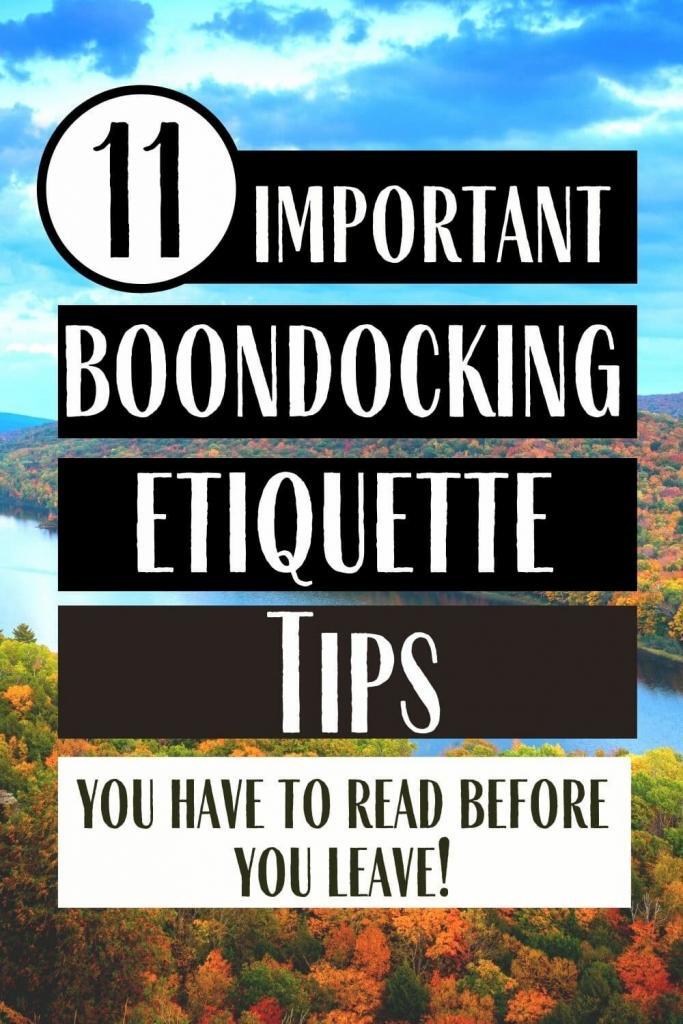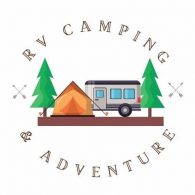Thinking of doing a little off-grid camping on your next RV trip? If so, here are a few boondocking etiquette tips you need to know that will help you be a good camping neighbor and have fun.
Here’s what we’ll cover in this article…
Ready to get started? Great!
What Is Boondocking?
First, in case you didn’t know, boondocking (also known as dry camping, free camping, or wild camping) is camping without hookups. You don’t typically have access to water sources, electricity, or sewer while boondocking.
If interested, you can boondock on private property such as parking lots, public lands including state forests and national parks, BLM land, among other places.
Boondocking can be a great way to enjoy camping if you follow some simple rules and use a little common sense.
After all, being a conscientious person and good neighbor is part of responsible camping.
Boondocking Etiquette Tips To Keep In Mind
Since there is more than one way to enjoy boondocking, the rules and general guidelines differ a little depending on where you’re staying.
Let’s go over both blacktop boondocking (staying in parking lots, truck stops, or other public places) and boondocking in the boonies (national parks, BLM land, and other remote areas).
Blacktop Boondocking Etiquette Tips
If you’ve been on the road, start to feel tired, and decide it might be a good idea to pull into a Wal-Mart, Cabela’s, truck stop, or other business parking lot that allows overnight camping, here are a few tips:
1. Always ask for permission to stay overnight
Even if the store or truck stop is known for allowing overnight stays, it really is necessary (and common courtesy) to ask the store manager for permission before finding your boondocking spot and settling in.
Not all stores allow this type of overnight camping so getting the ok to stay is essential if you don’t want to be accused of trespassing.
2. Don’t overstay your welcome
While you may feel that overnight is not enough of a stay, a parking lot is not like RV parks. The business would appreciate it if you moved on.
They may be open to people spending the night but don’t want to become a long-term campground. Asking for one night of free camping is the general guideline here.
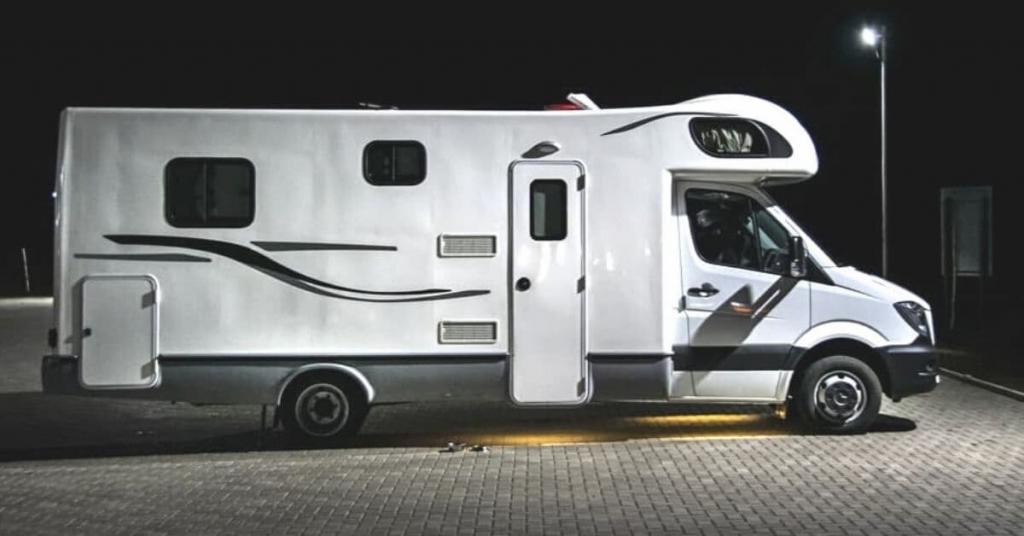
3. Be a good neighbor
If other people are coming in to spend money, acting overly disruptive can make them feel uncomfortable and drive away customers. Try to keep your noise down, avoid playing loud music, don’t run your generator, and generally just use good judgment and be mindful of others.
Also, try not to park right next to other RVs, campers, or semi-trucks. This will ensure that everyone has their own space and you will notice less noise (trucks can be loud!)
4. Don’t set up a permanent campsite
This is just a spot for an overnight stay to get off the road and get some rest. A store or truck stop is not the place to put out the awning, pull out camping chairs, bring out the portable grill, and have a few beers-no matter how fun that might sound 😉
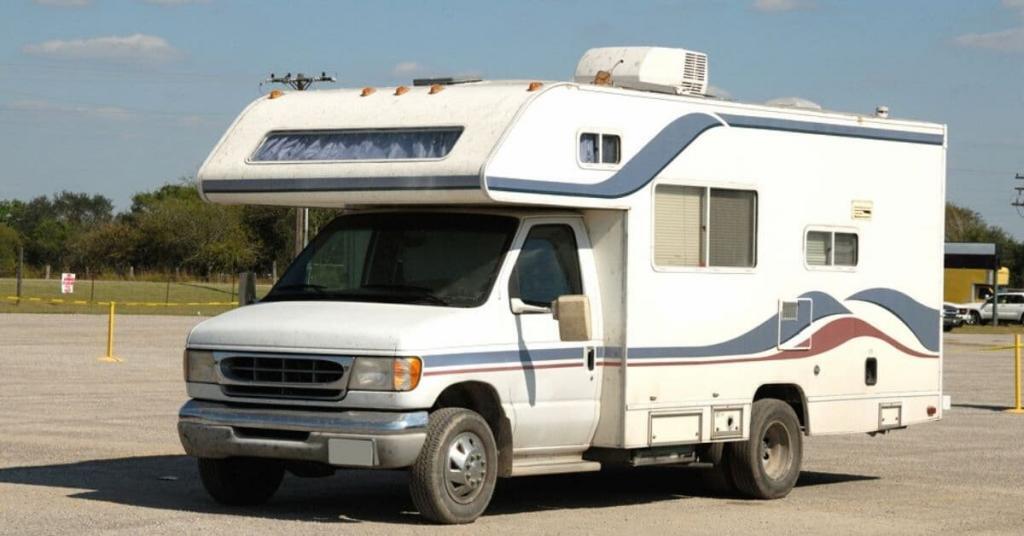
5. Read and follow rules and regulations
Many stores or truck stops will have rules or regulations for those choosing to stay the night. These often include things already mentioned like excessive noise and staying only one night, but other rules may include:
- No dumping of grey or black tanks
- Water hookups not available
- Clean up after pets and yourself
- Park in the appropriate area
- Use of hydraulic jacks not permitted
Each business is different, so when you ask for permission to stay, be sure to ask about the rules if they don’t mention it at the time.
6. Make a purchase
If you’re able, be sure to make a purchase at the business or truck stop. They are letting you stay overnight for free so it’s just a small way of saying “thank you” and supporting their business.
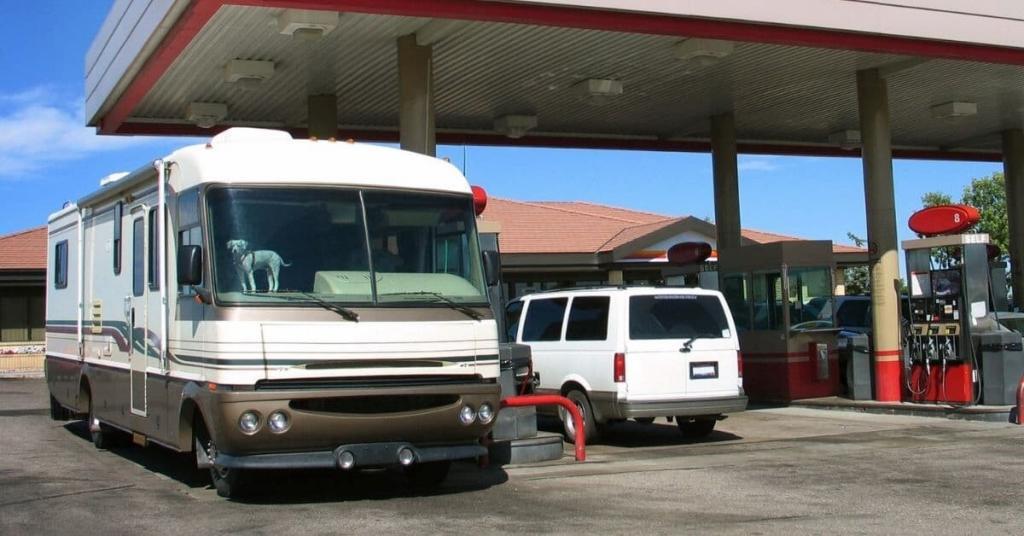
No matter where you end up staying, please be respectful, remember the golden rule, and use good judgment. Businesses do not have to let people stop, but do so out of kindness or in hopes of attracting a little more business.
Regardless of their motives, a clean, quiet place for overnight parking when you’ve driven a long way is always appreciated, so let’s show some of that appreciation to the businesses 😉
Remote Boondocking Etiquette Tips And Best Practices
So, you’ve decided that you would like to try camping in a more remote area. These campgrounds generally don’t have hookups to water, sewer, or electricity so the dry-camping ability is essential.
If you’re interested in finding wilderness areas to camp, the USDA Forest Service and Bureau of Land Management (BLM) have many areas that allow camping. This is often called “dispersed camping” (just in case you were going to Google it).
So, let’s go over boondocking etiquette and a general code of conduct for camping in the great outdoors!
1. Always ask for permission
Ask the park rangers or camp hosts if it’s okay to camp in the area. It is usually free, but in some places there may be a small fee. Either way, you still want to get permission before you make yourself comfortable.
2. Stay on designated sites
Most areas have a designated campground, so make sure you ask if you are unsure and stay in the appropriate areas. You can usually find these by looking at a map, asking locals, or by talking with rangers.
The same goes for parking and trails. Don’t make your own parking spot or trail, stick to using what is already there.
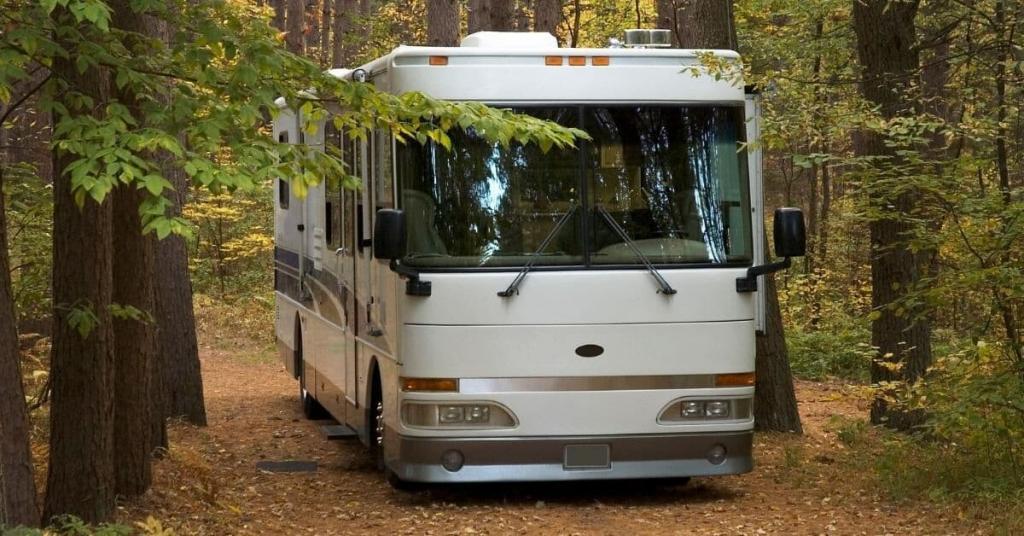
3. Leave no trace
Remote campsites have been used by people for years. These sites are special and loved by many, so we must leave the area as we found it or even better if possible.
The best way to do this is to pack out what you bring in, dispose of trash properly, clean up after your animals, and take all other supplies like firewood with you.
Leaving no trace is the best way to preserve these locations for others to enjoy, so please do your part!
4. Respect wildlife
One of the great things about camping in remote areas is that wildlife will be abundant, but they can be very dangerous if you don’t take precautions.
Always keep food and supplies in a hard-sided vehicle or bear-proof container, never feed the wildlife or leave food in camping areas, and make plenty of noise to avoid surprise encounters.
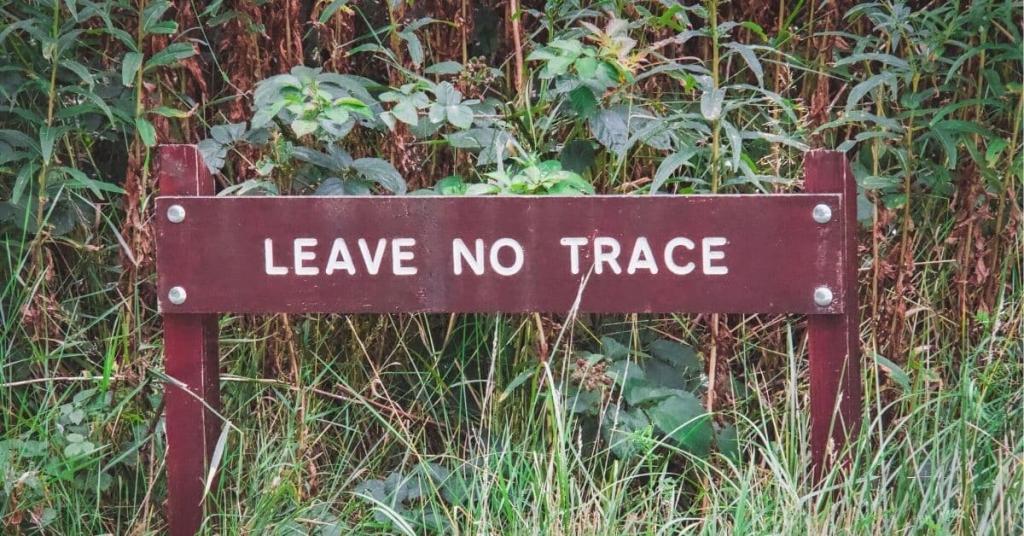
5. Respect fellow campers
Many people love going camping for peace and quiet, so please be respectful of a boondocking neighbors need for this peacefulness by not playing loud music or being too noisy.
Also, be sure to park far enough away from other campers to keep a respectful distance.
While most campers are friendly people that don’t mind having a conversation now and again, if your fellow RV’er is boondocking in a forest they probably want some privacy along with peace and quiet.
6. Do not bring in firewood
State rules vary, but for the most part, it is illegal to bring in firewood from other locations. This spreads invasive insects and diseases that can cause serious damage to entire forests.
So please leave your firewood at home and ask the rangers where you can buy some if needed.
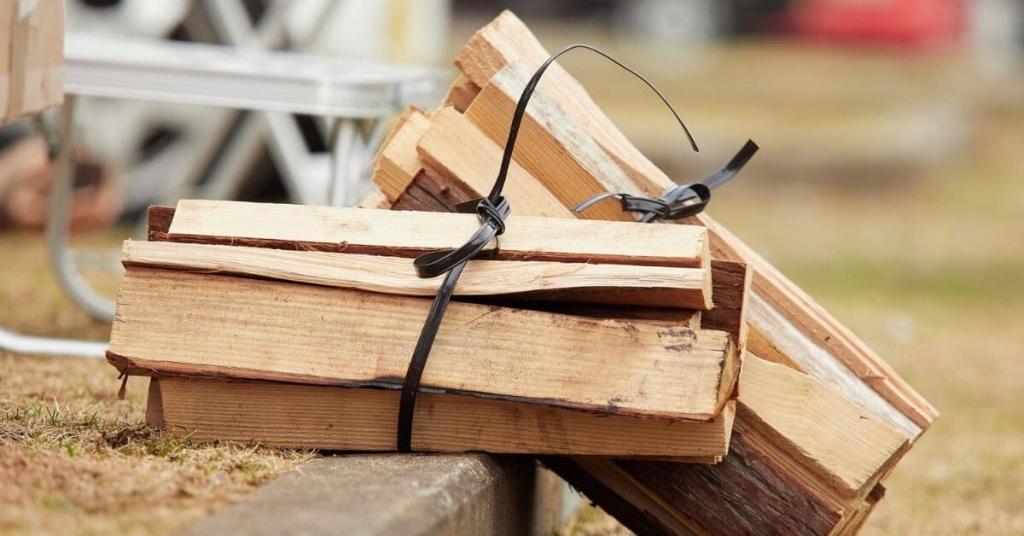
7. Leave artifacts where they belong
Artifacts are very valuable, they can help us understand what life was like for our ancestors long ago.
So, if you happen to find something, please resist the urge to take a souvenir home and be sure to contact a ranger or other appropriate person.
8. Only dump tanks in approved areas
Boondocking will generally require that you empty your gray and black water tanks, so it’s important to find a dump station.
Many places have them, but if they don’t, do not drain them onto the ground.
If you need help finding a dump station you can check out websites like rvdumps.com or sanidumps.com.
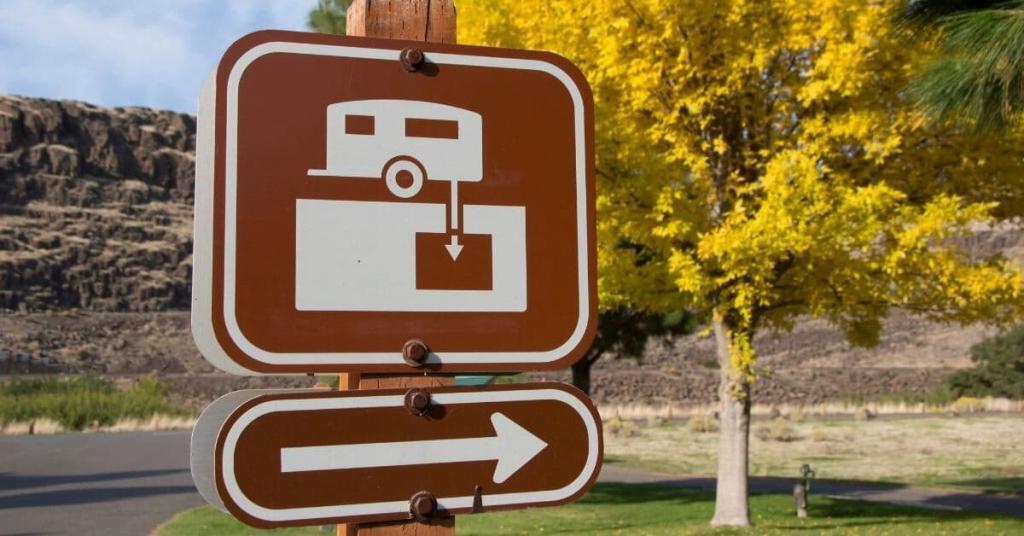
9. Be a rule follower
Each camping area may have different rules pertaining to pets, stay limits, quiet hours and noise level limits, speed limits, animal encounters, or any other camping-related, safety, or land use issues.
Please be respectful of these rules and obey them, they are there for your protection as well as the land and other campers.
10. Leave with a smile on your face
Ok, this one isn’t as much of a rule as it is a good wish for you.
I hope that by being aware of boondocking etiquette you are able to have a fun, safe trip and make memories to last a lifetime!
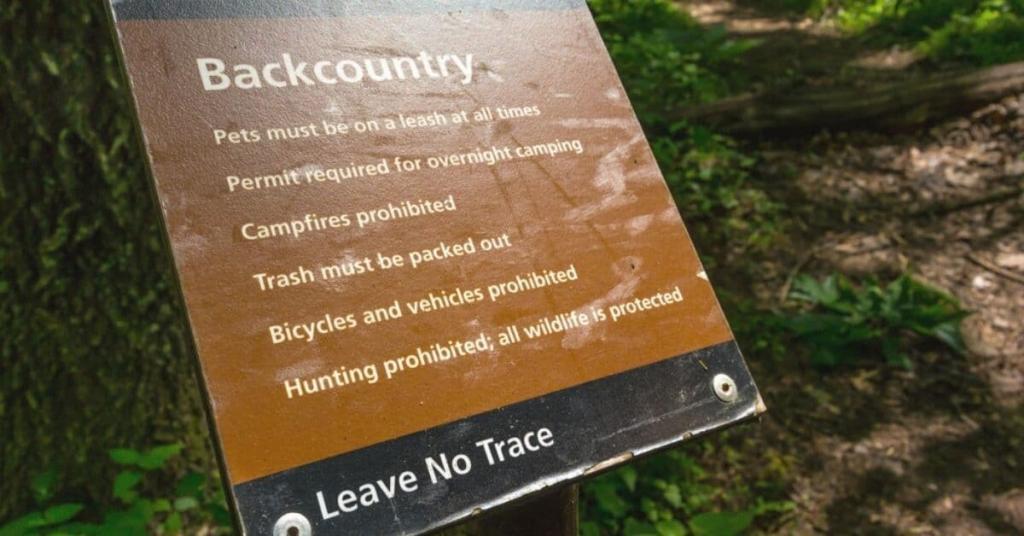
*Bonus tip
Staying in remote places, business parking lots, or rest stops may be a great adventure that costs next to nothing, but it is essential that you know and understand boondocking safety and how to get in touch with local law enforcement or emergency services if you should need them.
Last Thoughts About Boondocking Etiquette
Boondocking etiquette is important so be sure to read everything you can before you set out on your next road trip, understand the written and unwritten rules of good boondocking etiquette, and go out and enjoy great views of the country with little impact so future generations can enjoy them as well.
Have a fun and safe trip!
Related Articles
- RV Boondocking For Beginners: Everything You Need To Know Before You Go
- What Is The Best RV For Boondocking? Here Are 10 Great Options!
- 20 Boondocking Safety Tips + Must-Have Supplies: Essential Info You Need Before You Leave!
- What Is The Best RV Battery For Dry Camping? Here Are 6 Top Picks!
- 5 Best Composting Toilets For An RV (+Pros And Cons, Tips, Benefits!)
- Top 5 RV Water Filters: Find The Best Option For Your Needs
- How To Quickly & Easily Sanitize An RV Water Tank
Interested in learning more about boondocking or just RV’ing in general? Check out the RV basics section to find info about these topics and more!
